Connecting families to nature
WWF’s Nature School offers community programmes and activities designed for children and families, fostering a deeper connection with nature through experiential learning at our outdoor centres, including Mai Po Nature Reserve, Hoi Ha Marine Life Centre and Island House Conservation Studies Centre. During the year, several new programmes helped Nature School grow even further.
In the summer of 2024, we launched the “Mai Po Night Safari Overnight Experience for Families”. This unique two-day, one-night programme welcomed over 30 participants who then enjoyed a guided night safari, an overnight stay in the Peter Scott Visitor Centre, a morning exploration of the beautiful Mai Po wetlands, and an art workshop.
Our “Buddying-up with Buffaloes” programme was also offered throughout the year at Mai Po. During this halfday activity, parents and children met our “conservation buddies”, the buffaloes, learned about their role in wetland management and participated in hands-on field work experience such as vegetation management.
The “Marine Guardians” programme at Hoi Ha Wan gave families with younger children a fun opportunity to learn about marine conservation and coral restoration through beach visits, a glass-bottomed boat ride and coral nursery tank observations.

Participants enjoyed a guided night safari during our new overnight programme at Mai Po
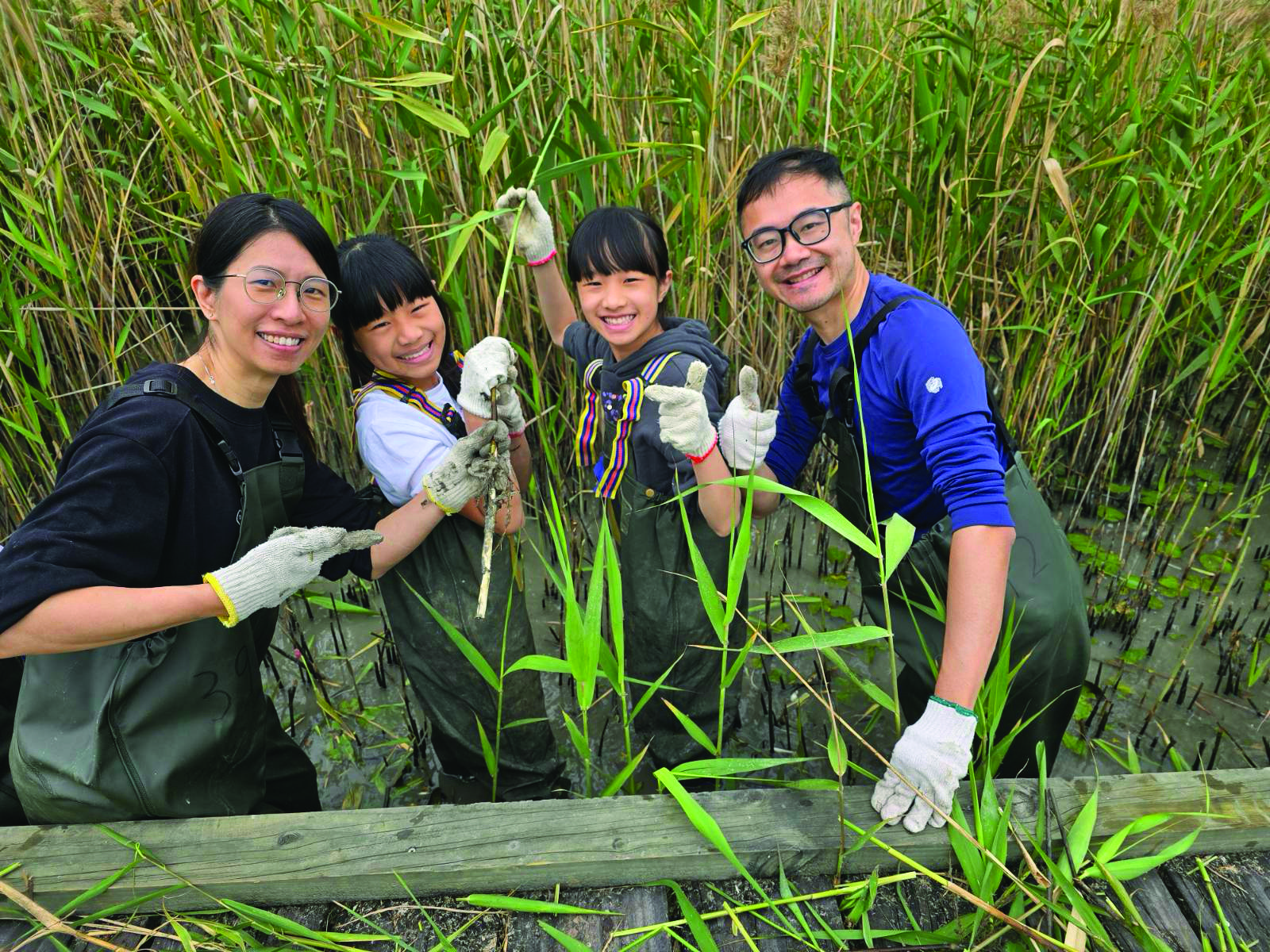
Throughout the year, WWF-Hong Kong offered activities designed for families to foster deeper connections with nature
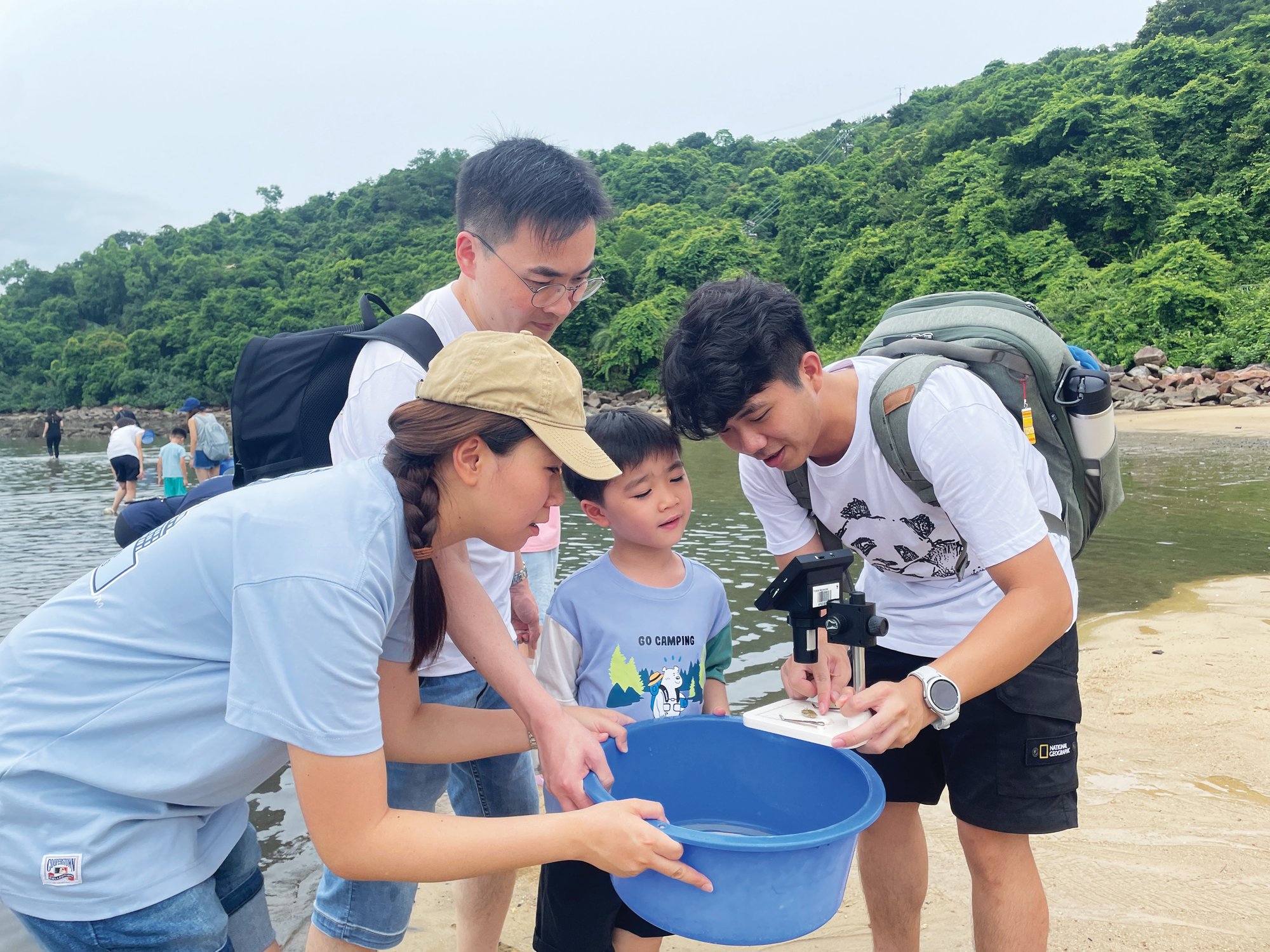
Participants explored the coastal environment with guidance by our staff
Enhanced outdoor programmes and facilities upgrades
The past year saw a significant evolution in WWF-Hong Kong’s centre-based education programmes. A particular highlight was the installation of coral nursery tanks at our Hoi Ha Marine Life Centre, which has enhanced our primary and secondary school education programmes. The primary programme now includes hands-on experiences that help students understand the coral nursery process and its ecological significance; while secondary students engage in scientific measurements to deepen their comprehension of coral restoration work.
Opened in late 2023, the newly-upgraded Peter Scott Visitor Centre at Mai Po provided an indoor classroom that facilitated group discussions and urban planning exercises for our revamped “Metropolis Planner @ Deep Bay” secondary education programme. This initiative taught students about the impacts of large-scale development on Hong Kong’s wetlands, highlighting the roles of stakeholders and the importance of sustainable development. We also introduced a summer education programme featuring an educational biodiversity card game developed in collaboration with a secondary school that provides an engaging indoor activity for school visits to complement the outdoor field visits.
Feedback from schools on the new programmes and facilities has been very positive. The hands-on coral nursery elements have greatly enhanced student engagement and understanding of marine conservation. The Peter Scott Visitor Centre’s new facilities have been praised for promoting collaborative learning, with the indoor classroom being a wonderful place for discussions, especially during adverse weather; while the card game has been well-received as an enjoyable and interactive way for students to learn about biodiversity.
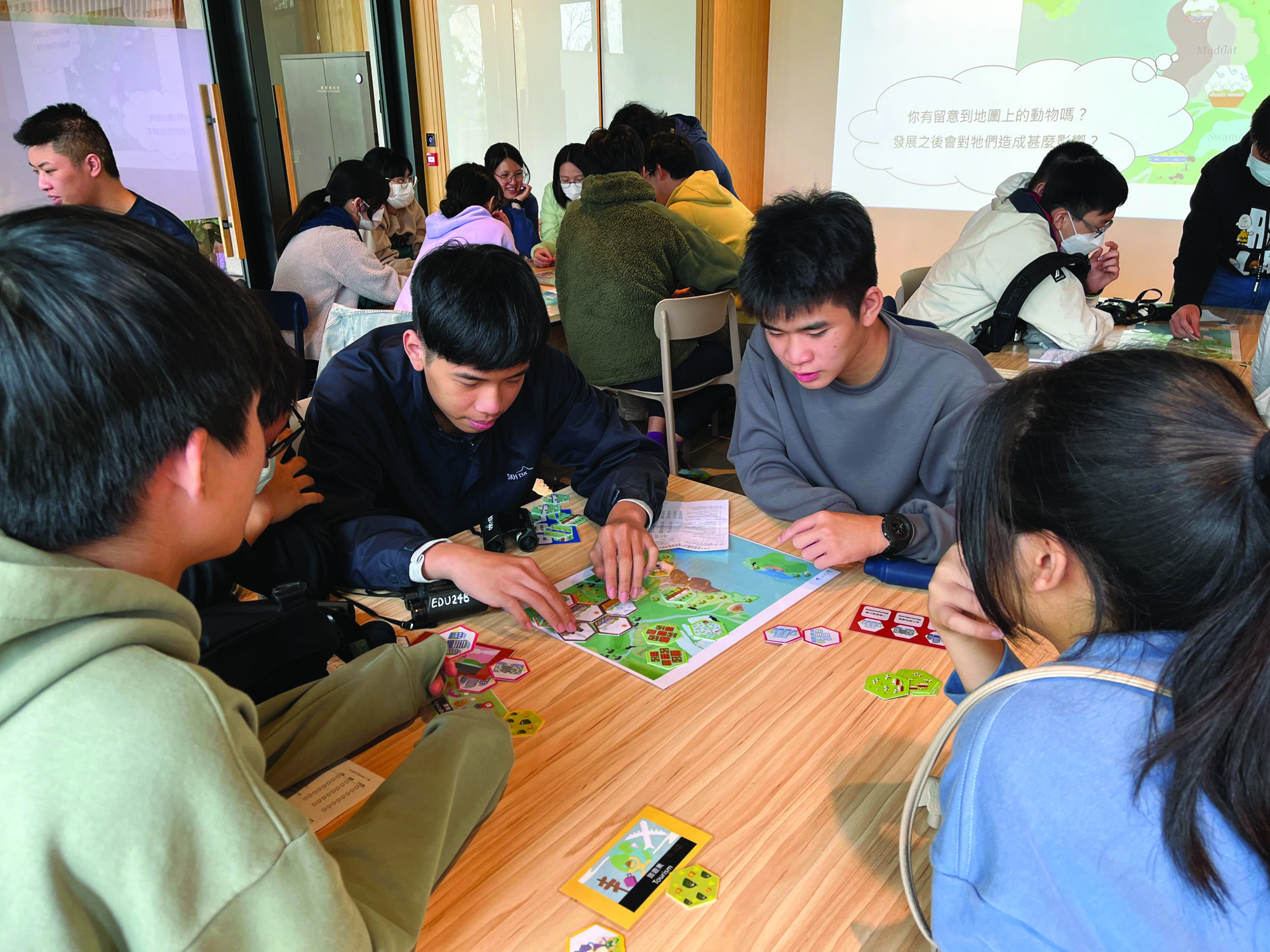
Students engaged in group discussions on urban planning at the newly upgraded Peter Scott Visitor Centre at Mai Po

Students learnt about the coral nursery process at Hoi Ha Marine Life Centre
Expanding our education impact
WWF-Hong Kong is committed to mainstreaming sustainability within the education system. During the year, we widened our influence by providing various consultancy services to the school sector.
As the technical consultant for the Hong Kong Award for Environmental Excellence (Schools Sector), we advocated for a whole-school approach in Education for Sustainable Development. We also recommended that schools provide outdoor experiential learning opportunities for students to foster a deeper connection with nature and enhance their understanding of environmental issues. Our involvement in the award allows us to monitor overall school performance in environmental management and education, while also establishing learning circles among schools to facilitate knowledge sharing and collaboration.
We also served as consultant for a textbook publisher, integrating environmental conservation messaging into new humanities and science subjects for primary schools, helping to ensure that young learners receive consistent and impactful messages about sustainability.
Meanwhile, we continued to support various professional development trainings for teachers throughout the year. Offered by the Education Bureau, these trainings comprise of diverse themes which helped teachers enhance their capacity to effectively teach environmental topics. Through these efforts, WWF continued our leadership role in Environmental Education, equipping both educators and students with the knowledge and skills necessary for a sustainable future.
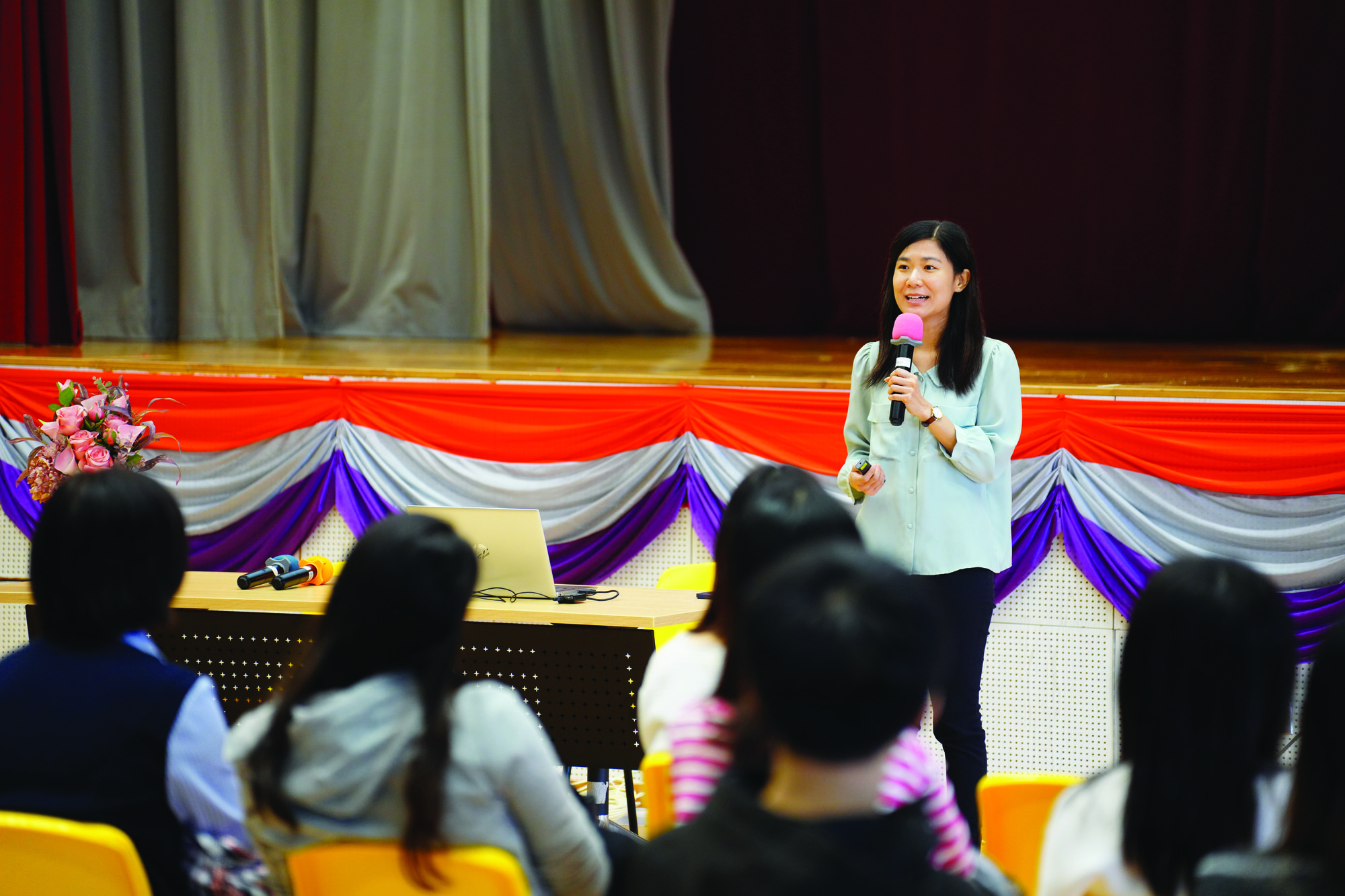
Our representative facilitated school teachers to learn about sustainable practices within the schools sector
.jpeg)
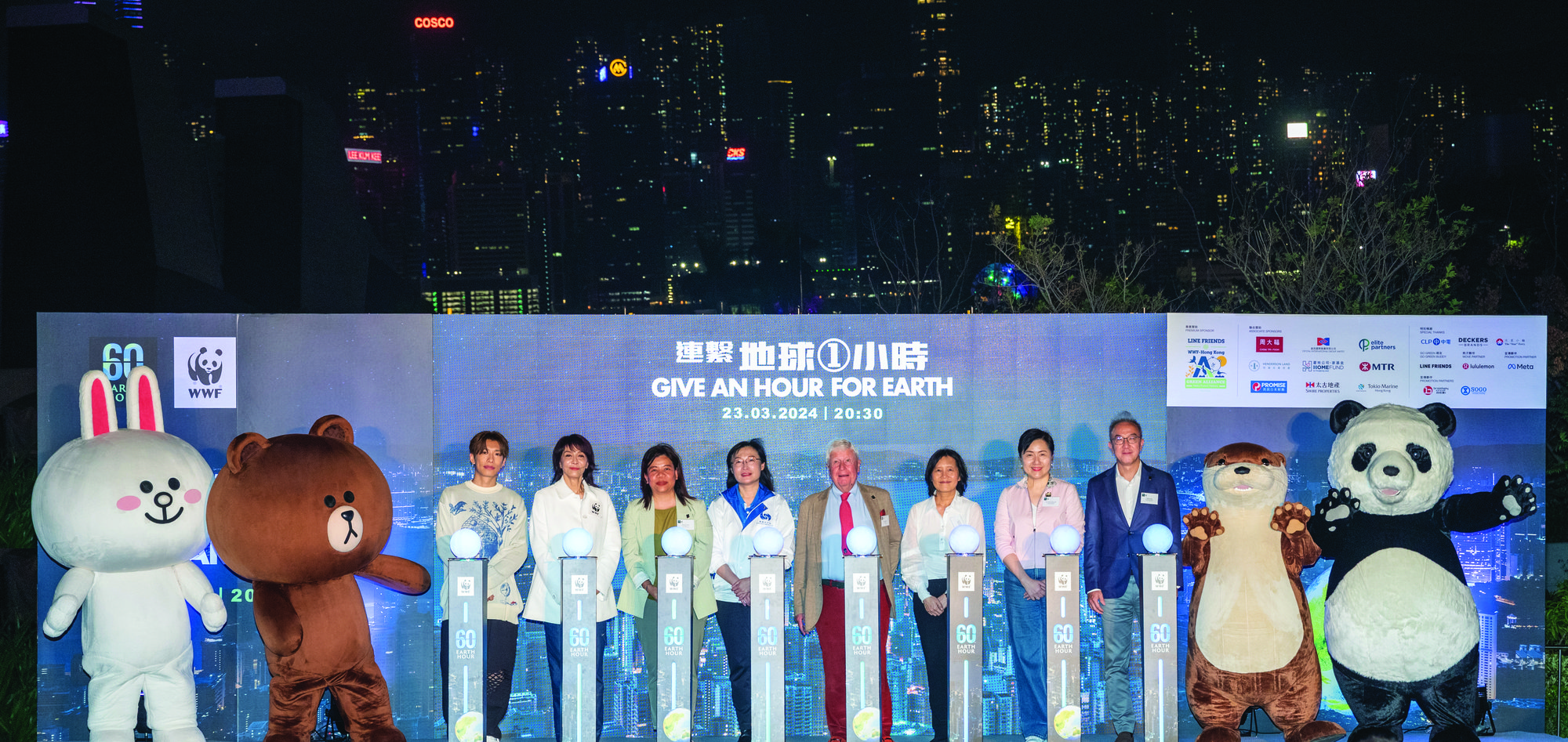




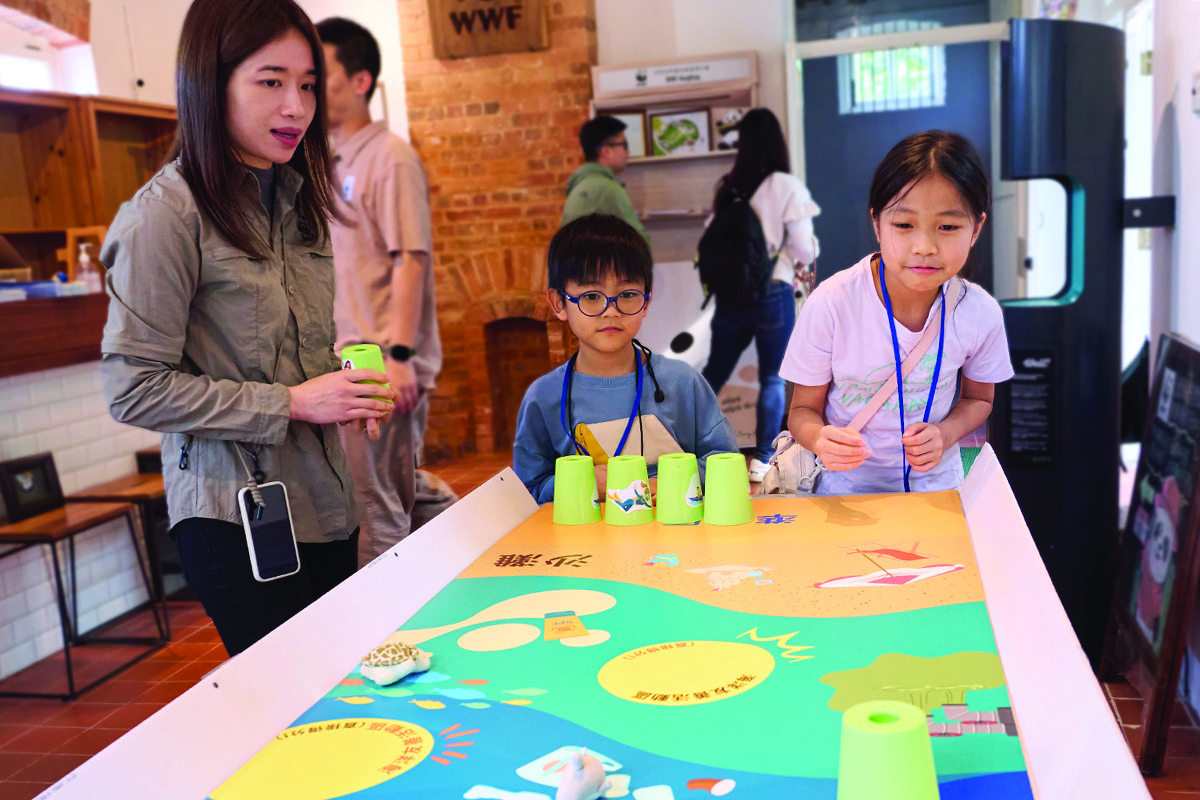
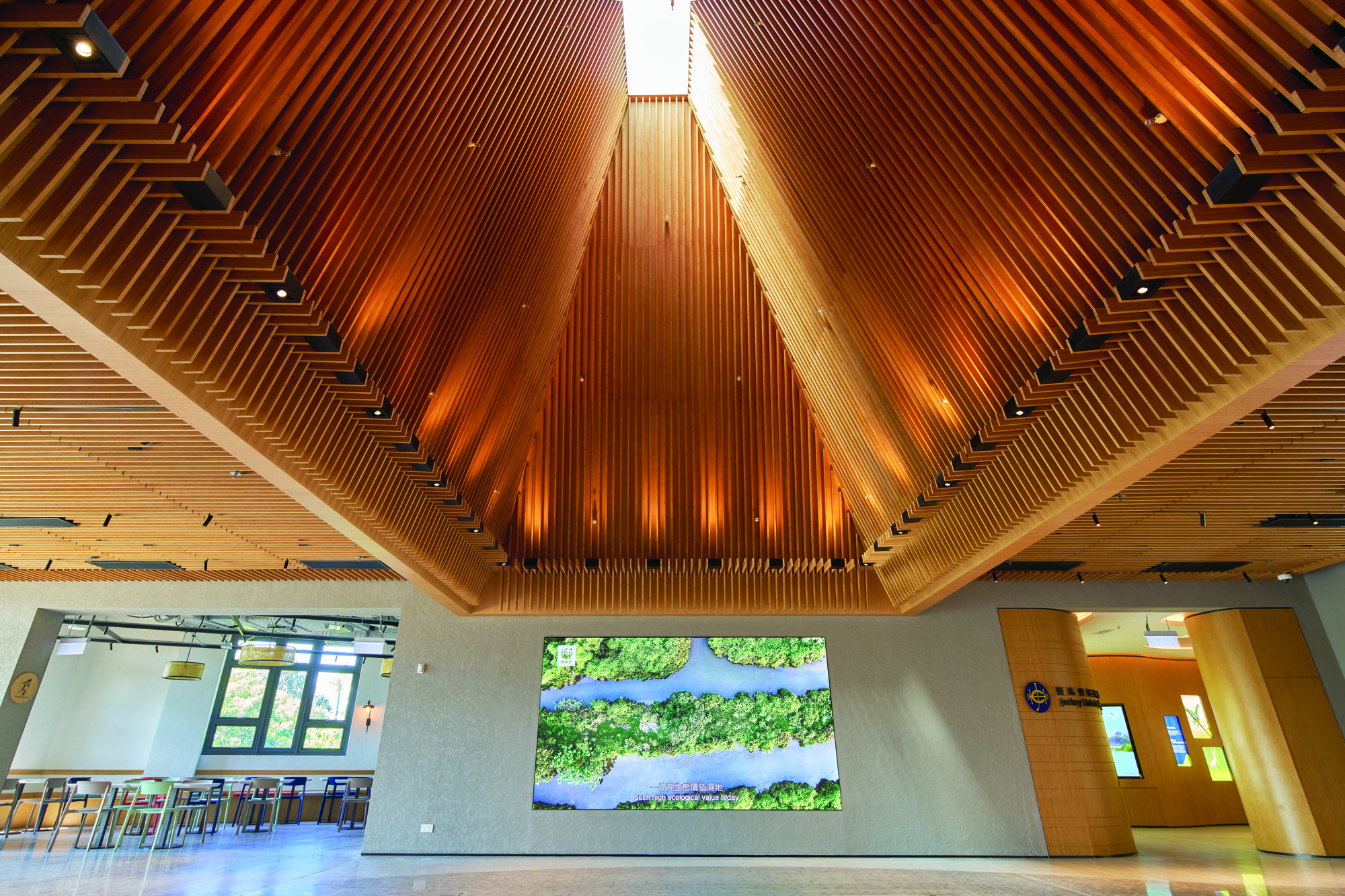
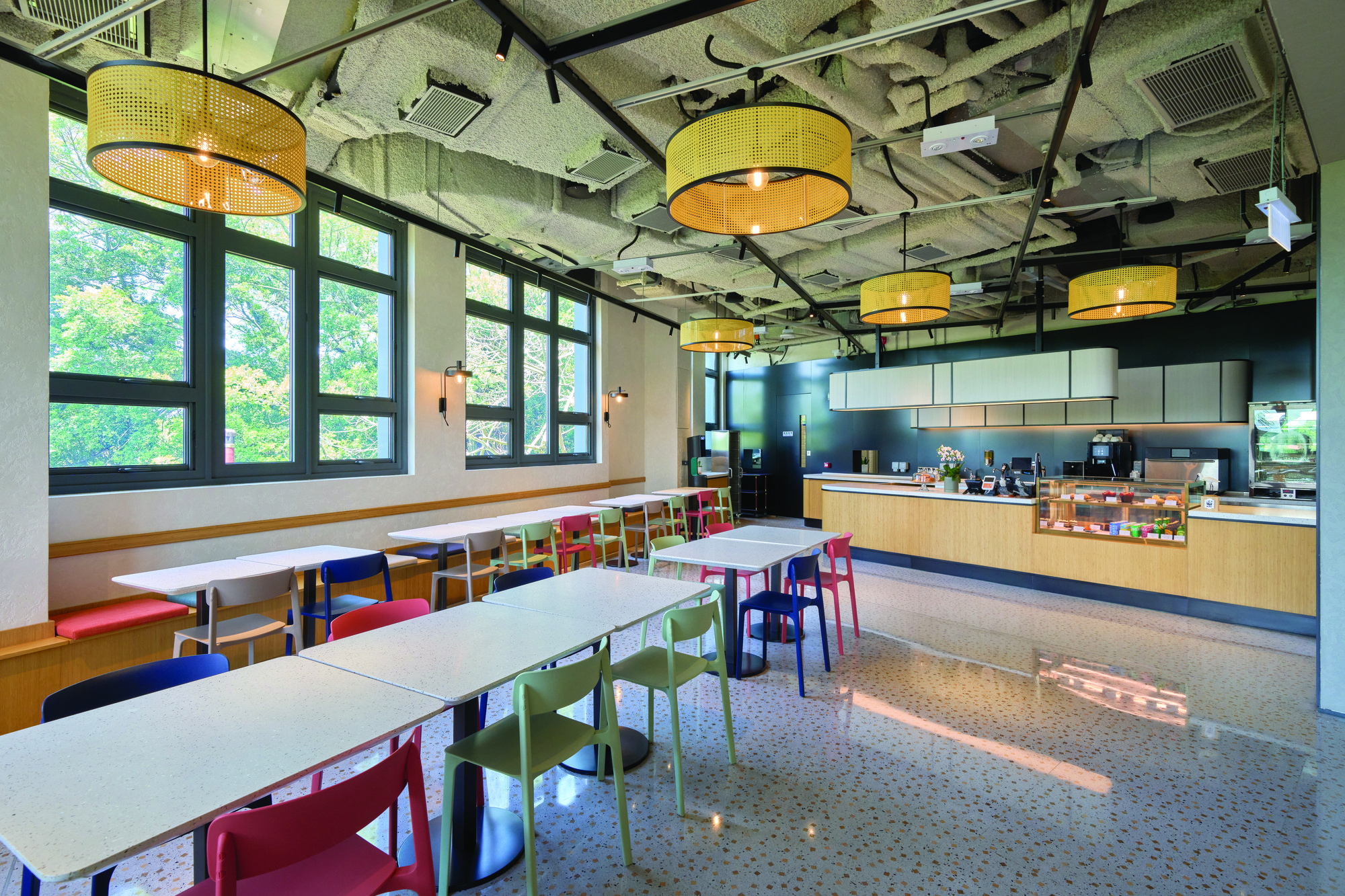
.jpg)